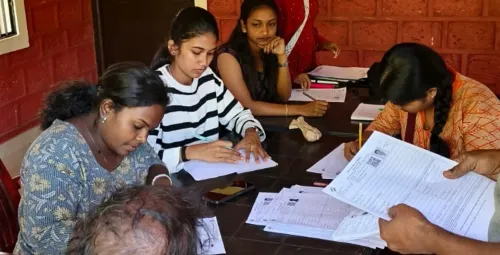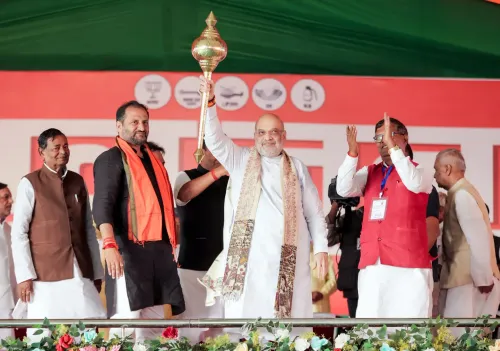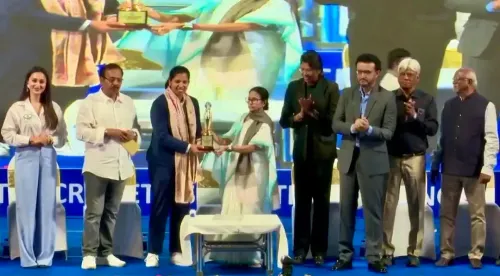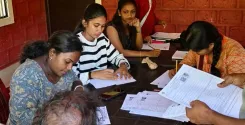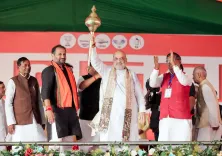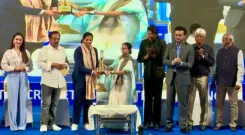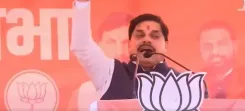Delimitation Poses a Risk to Political Representation in Southern States: Udhayanidhi Stalin
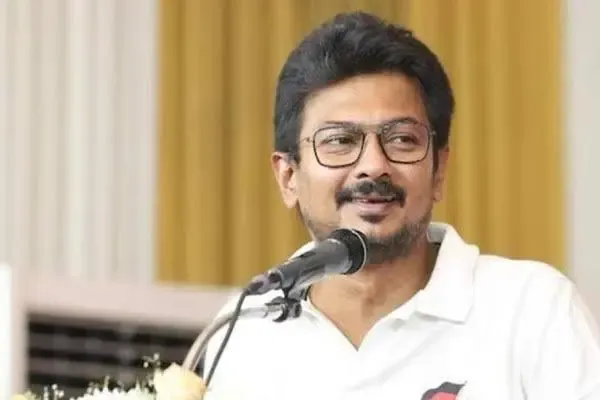
Synopsis
Key Takeaways
- Udhayanidhi Stalin calls delimitation a threat to southern states.
- He emphasizes the achievements of states in managing population growth.
- The proposed changes could diminish political representation for Tamil Nadu.
- Conflicting statements from leaders add to confusion.
- Stalin urges unity among states to protect representation.
Chennai, March 22 (NationPress) Tamil Nadu's Deputy Chief Minister Udhayanidhi Stalin expressed on Saturday that the upcoming delimitation exercise represents a significant threat to the political representation of southern states and must be strongly opposed.
During the opening session of the Joint Action Committee (JAC) meeting concerning delimitation in Chennai, convened by his father and Tamil Nadu Chief Minister M.K. Stalin, Udhayanidhi Stalin cautioned that this initiative poses a serious risk to the rights and representation of states that have effectively adopted population control measures.
Labeling the meeting as “crucial,” he stated: “We are at a critical juncture where our voices and rights face real threats.”
He characterized the proposed delimitation as a “threat” from the Centre, explaining how it unfairly penalizes states like Tamil Nadu that have successfully managed their population growth through proactive family planning strategies.
“We have instituted policies, raised awareness, and achieved the national objective of stabilizing population growth. While certain states continue to experience population surges, we have acted responsibly. Consequently, we reached the population replacement rate substantially earlier than others. Yet, instead of being recognized, we now face the potential loss of political representation,”
he emphasized.
Referencing Article 82 of the Constitution, he discussed the legal guidelines for delimitation.
“Parliamentary seats are intended to be reallocated following each census. For instance, the number of Lok Sabha seats grew from 489 to 494 after the 1951 census and to 522 post the 1961 census. The last delimitation was conducted based on the 1971 census, fixing the seats at 543,”
he stated.
Udhayanidhi Stalin pointed out that previous amendments had frozen the delimitation process to safeguard the interests of states that have stabilized their populations.
“To incentivize responsible states, the 42nd Amendment in 1976 froze delimitation for 25 years, until 2000. This was extended by the 84th Amendment in 2002 until 2026,”
he noted, adding that with the freeze nearing its end and the 2021 census still unresolved due to the Covid-19 pandemic, uncertainty looms.
“This delay appears strategic. If delimitation is implemented using post-2026 census data, Lok Sabha seats will be drastically realigned. States with higher population growth will gain seats, while states like ours will be disadvantaged,”
he warned.
Udhayanidhi Stalin condemned the Central government for its lack of transparency.
“There has been no explicit communication from either the Prime Minister or the Home Minister regarding the continuation of the freeze. Their conflicting statements have only fostered confusion,”
he remarked.
Quoting various leaders, he added: “In September 2023, Home Minister Amit Shah informed Parliament that the number of Lok Sabha seats would increase post-delimitation. However, during an election rally in Telangana, Prime Minister Modi cautioned that southern states could potentially lose around 100 seats. Meanwhile, in Coimbatore, Shah recently asserted that Tamil Nadu would not be impacted by the delimitation.”
“These conflicting statements leave us with pressing questions. Will the number of seats remain at 543 or increase? If it increases, to what number? And most crucially, how will they be allocated? Will it be based on the 1971 census or the proposed 2026 census?”
The Tamil Nadu Deputy Chief Minister outlined two possible scenarios if the freeze is not extended, suggesting either a redistribution of the existing 543 seats based on the 2026 census data or an expansion of Lok Sabha to 848 seats, followed by redistribution.
“In either case, our political representation will significantly decline,”
he stated.
Udhayanidhi Stalin also indicated that the states represented at the JAC currently hold 163 of the 543 Lok Sabha seats, accounting for nearly 30 percent.
“If delimitation proceeds, our collective representation could diminish to just 133 seats — approximately 24 percent. For instance, Kerala may lose 8 out of its 20 seats, an alarming 40 percent reduction. Even if the number of seats increases, our overall share will still decline to about 24.7 percent from the current 30 percent,”
he elaborated.
The Deputy Chief Minister cautioned that such an outcome would disproportionately benefit states like Uttar Pradesh, Bihar, Rajasthan, and Madhya Pradesh — which have higher population growth rates — while diminishing the voice of the South and other states adhering to the population control roadmap.
“This disparity will enable a few states to dominate national policy decisions on agriculture, industry, employment, and regional development, sidelining the authentic needs and aspirations of our populace,”
he argued.
“The formation of the Union government will be predominantly influenced by a select few states, undermining the federal structure and marginalizing southern states and other responsible regions.”
Labeling the move as “unjust and politically motivated,” Udhayanidhi Stalin asserted: “This is not merely a numbers game — it’s a calculated attempt to reduce the influence of non-BJP governed states.”
He called upon all states present to unite against what he termed an unjust procedure. “We must collectively demand that the current proportionate representation of each state in the Lok Sabha be preserved, regardless of the total number of seats. This isn’t solely about the South or any single region. It’s about safeguarding the future of democracy in India. Let us stand united, raise our voices, and advocate for a fair and just delimitation process that upholds representation and ensures justice for future generations,” he concluded.


